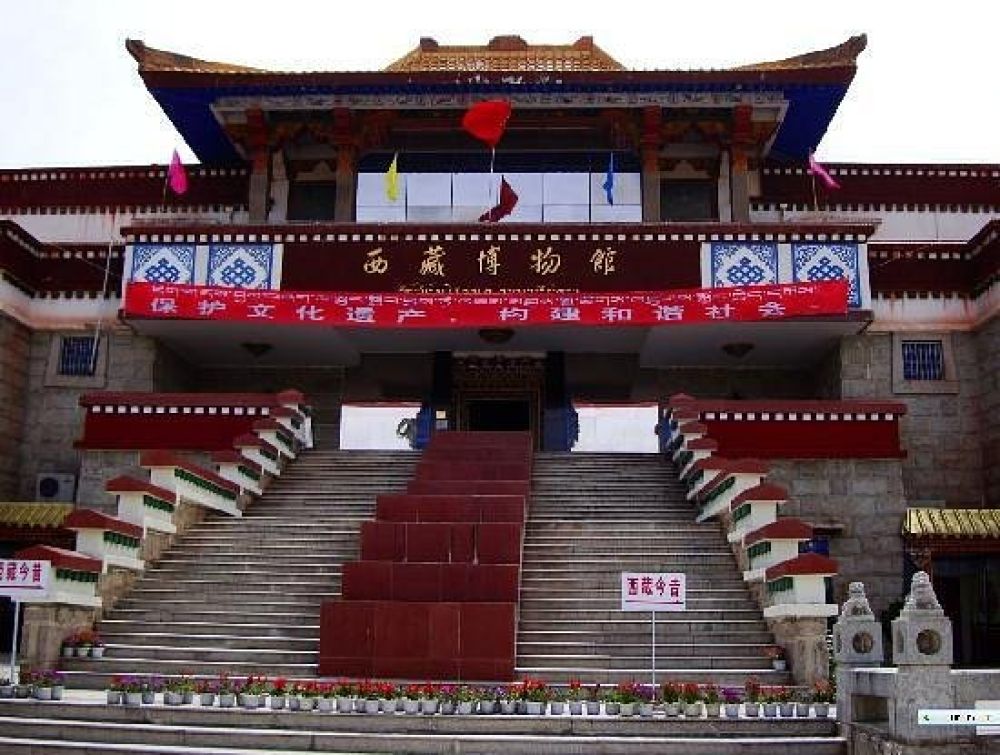

The Tibet Museum, located in the heart of Lhasa, the capital city of Tibet Autonomous Region in China, stands as a significant cultural institution dedicated to the history, art, and culture of Tibet. Inaugurated in October 1999, the Tibet Museum is both an important tourist attraction and a center for Tibetan heritage preservation.
Constructed with a blend of Tibetan and modern architectural styles, the museum captures the essence of Tibetan culture while providing a contemporary space for exhibitions and research. It houses a rich collection of prehistoric artifacts, imperial jade seals, Buddhist statues, tangkas (Tibetan silk paintings), and various cultural relics that tell the story of Tibet’s history and its interaction with neighboring cultures and invaders.
Tourism in Lhasa has a layered history, closely tied to its religious significance and political status within China. Visitors have long been attracted to the city's spiritual sites, such as the Potala Palace and Jokhang Temple. With the opening of the Tibet Museum, tourists have an additional avenue to explore Tibetan culture and history, making it a must-visit destination for both international and domestic travelers.
Tourism in Lhasa has seen a shift towards more sustainable and culturally respectful practices, mirroring global tourism trends. The focus has been on preserving the delicate ecology of the region and its unique cultural heritage. This includes regulations to protect historical sites and managing tourist numbers to prevent overcrowding, especially at popular locations like the Tibet Museum.
Furthermore, the museum has embraced technological advancements, including virtual tours and interactive displays, which have become particularly popular in light of travel restrictions due to the COVID-19 pandemic. These innovations allow the museum to reach a broader audience and provide an alternative means of encountering Tibet's rich heritage from afar.
For tourists planning to visit the Tibet Secretariat Museum, it is advisable to check the current regulations regarding travel to Tibet, as these can change and often require permits. Once there, visitors can expect a deep dive into the Tibetan civilization through exquisite exhibits and educational programs that the museum offers.
Operating Hours: The Tibet Museum is open to the public from 9:00 AM to 6:00 PM, though hours may vary based on the season and local holidays. Visitors are encouraged to verify the timings before planning their visit.
The Tibet Museum in Lhasa is not only a treasure trove of Tibetan history and culture but also a testament to the increasing emphasis on cultural preservation within the realm of tourism. As the global tourism industry continues to evolve, the Tibet Museum remains a beacon of learning and cultural exchange, inviting travelers from around the world to explore the rich tapestry of Tibet.